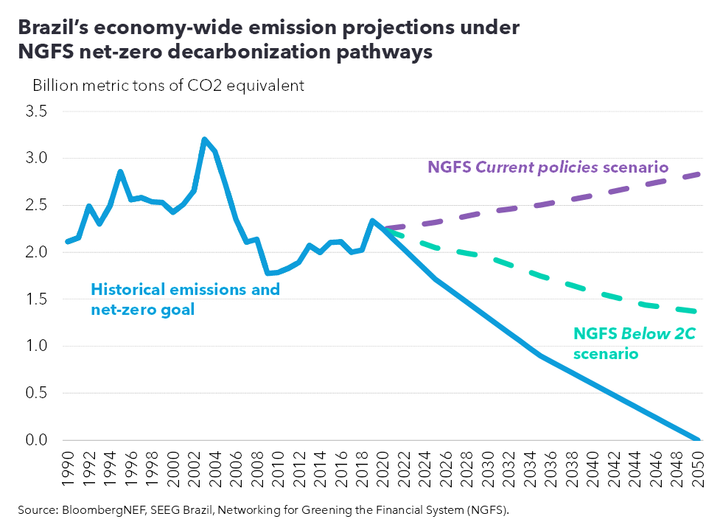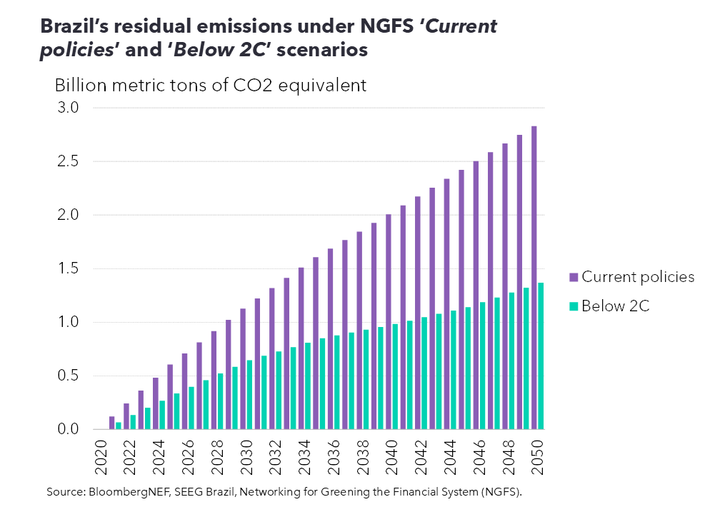Carbon credits in Brazil's road to net zero
intermediate
|
28 Mar 2025
Brazil has been lauded for its immense nature-based abatement potential, which could be instrumental in supporting the country in achieving its Paris Agreement-aligned Nationally Determined Contribution (NDC). It has committed to achieving net-zero emissions by 2050, with two interim targets of 50% emissions reduction by 2030 and 59-67% by 2035, from 2005 levels. But if it decarbonizes quickly enough, Brazil could also be a hub for international carbon trading, exporting its credits globally to help other countries achieve their own climate goals.
Key message
Brazil has committed to achieving net-zero emissions by 2050. Depending on how aggressively it reduces its emissions, carbon credits could play an integral or supplementary role in the country’s decarbonization. This, in turn, would determine whether Brazil is a net importer or exporter of international carbon credits.
Brazil's projected emissions in 2050
Whether Brazil will be able to tap into international trading or need all its natural capital for its own climate goal will depend on how fast it decarbonizes. This rate will determine how much residual emissions it will have, which will need to be neutralized with carbon credits for the country to achieve its climate goals. If Brazil reduces its gross emissions – everything before carbon credits – on a pathway consistent with the Network for Greening the Financial System (NGFS) Current policies scenario, where existing policies today are maintained to mid-century, its annual emissions will grow to 2.8 billion metric tons in 2050. Conversely, if more ambitious climate policies are enforced to limit warming, in line with the NGFS Below 2C scenario, Brazil’s gross emissions will drop to 1.4 billion metric tons in 2050.

If Brazil reduced its emissions in line with the NGFS Current policies scenario, the country would need 46 billion carbon credits between now and 2050 to achieve its NDC and net-zero goal. This amount could potentially be halved – to 23.2 billion carbon credits – in an emission reduction pathway aligned with the NGFS Below 2C scenario.

Brazil: a net importer or exporter?
Based on BNEF’s estimates that 30.5 billion nature-based carbon credits could be generated in Brazil from now until 2050, Brazil would need to leverage all its abatement potential domestically to meet its NDCs if its climate policies are not aggressive enough. The country might even have to import Article 6-compliant carbon credits from other countries to supplement this.
But if Brazil decarbonizes more intensely – decarbonizing industry and transport, and implementing more ambitious climate policies – its abatement potential is more than sufficient to fulfil its carbon credit needs. It could then sell the remaining amount of its natural capital to other governments and businesses for added revenue. This could position the country as a net exporter and key supplier in international carbon trading.
Stay up to date
Sign up to be alerted when there are new Carbon Knowledge Hub releases.